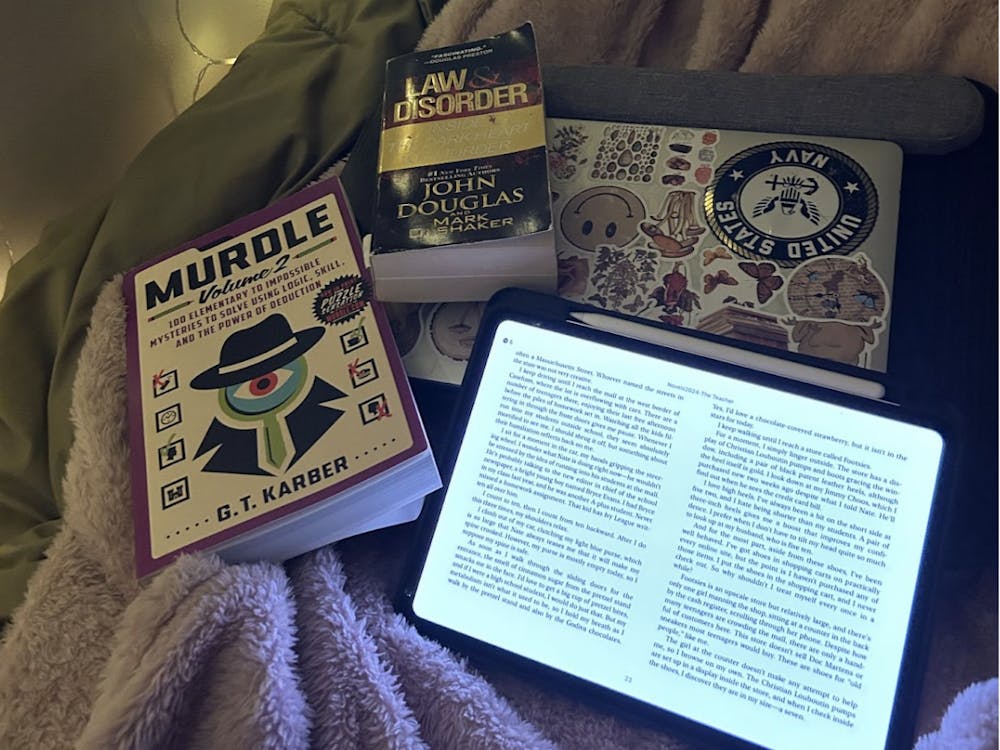Though necessary, the University’s decision to send students home and transition to online courses after spring break due to the coronavirus had students scrambling. We were forced to quickly rethink travel and living arrangements, pack our bags and say our goodbyes, without even knowing when we’d return to our friends and community.
Now those issues are mostly sorted out, but there’s one huge thing that’s still uncertain: academics. The University has assured us that professors have received training and prepared to move courses online, but that only addresses the instructional aspect of courses. So far, we haven’t been told what grading, or assessment, will look like this semester, but it seems like yet another thing that should change with the circumstances.
I urge University President Ronald J. Daniels and the administration to implement blanket Satisfactory/Unsatisfactory (S/U) grading this semester and to make a one-time adjustment to University degree requirements by allowing these classes to count for majors and minors.
First, we will not receive the same type or quality of education as we normally do. That’s not to say online learning is inherently inferior or ineffective; every day educators are coming up with increasingly innovative ways to facilitate learning online.
But ultimately, it’s not what we signed up for or how our courses were designed. Just two weeks to prepare for an abrupt, mid-semester switch won’t compensate for the weeks or months that professors spend planning their in-person courses. Many courses rely on and are strengthened by in-person and hands-on aspects: doing experiments, making artwork or models, taking field trips, looking at artifacts, and even simpler things like making eye contact with peers during discussion, turning and talking to a partner, or staying behind to ask an impromptu question. We no longer have any of that.
S/U grading would soften the dissonance between what we planned for and what we’re about to experience. It lowers the stakes in a situation where we’re making the best of what we've been given but where there will inevitably be problems that we cannot fix.
Second, to echo arguments from an editorial in The Daily Princetonian, we no longer have a fully operational campus as an equalizer. When we live on or around campus, we have close to equal access to vital resources: food, housing, health care, wifi, work-study opportunities, peaceful study spaces (like Brody or MSE), academic support (PILOT, Learning Den), emotional and social support from friends and others (like the Office of LGBTQ Life). Hell, being on campus means we’re all in the same time zone! Is it perfect? No. But it does level the playing field from what can be a steep hill for some to a gentle slope for all.
The University is working to now provide many of these resources remotely, but none are guaranteed when we’re away, especially during a crisis that’s decimating the economy and individual well-being. Lack of access to these resources makes it overwhelmingly difficult, or impossible, for all students to perform at the same academic level as they normally would on our resource-abundant campus.
Letter grades could reflect that disparity of access without explanation, which is unfair to students who will struggle disproportionately this semester. Letter grades create a scale of best to worst performance — best to worst student, even, in classes with curves. That competition is harmful when it weighs immovable obstacles instead of just academic competence. S/U grading is simpler, less demanding and will not hurt one’s GPA or standing.
And, as President Daniels has reminded us recently, we have an incredible community at Hopkins, but our academics aren’t even close to all of what makes this community so incredible. Every day I’m astounded by the kindness, compassion and hard work that everyone exhibits at Hopkins. Those are what fuel our accomplishments and renown, not just good grades or strong research and learning skills.
And this simply isn’t the time to prioritize academics and getting the best grades or GPA. Academics are of course important, but they’re not everything, and the second the University sent us home, they made that concession. Right now, many of us need to prioritize our health (both physical and mental) and our families and loved ones. The University must dedicate much of its energy and resources to research and services that can more quickly end the pandemic.
This semester, students and the University as a whole can redirect our kindness and compassion into those priorities. Aiming for high letter grades seems trivial compared to that. S/U grading is simply for continuity instead of halting classes altogether, so we won’t have let everything completely drop by the time the pandemic ends.
There’s been talk of other potential grading policies, which I also want to acknowledge. One is A/A- grading. Proponents of A/A- grading have much of the same reasoning as I have for supporting S/U grading. However, I think the University will be much more receptive to S/U grading than A/A- grading.
No other schools have implemented A/A- grading yet, so there is no precedent for the University to follow. However, there’s precedent for S/U grading; the University used to cover grades for first-semester freshmen, and students normally can choose to take one non-required class S/U per semester. Blanket S/U grading just widens a practice that’s already in place, whereas A/A- grading demands devising a new policy and criteria. S/U is more familiar and thus more appealing.
And though students deserve a break from the demands of school this semester, and some are in dire need of relief from academic obligations, the University will probably still be reluctant to “hand out” good grades without them having been fully “earned” (after all, we Hopkins students love to joke about our notorious grade deflation). Though A/A- grading could be beneficial, it is most strategic for students to rally behind something the University is more likely to agree to and which is still a more than sufficient policy. That’s S/U.
Another proposed policy is opt-in S/U. With opt-in, students could choose whether to take their classes S/U, or professors or departments could decide if their classes have that option. But again, much of the reasoning for changing grading this semester is to equalize a situation that otherwise wouldn’t be equal. Opt-in does not achieve that.
If students have the choice, those who opt in may look like they are hiding otherwise “bad” grades compared to those who stuck to letter grades. That is still unfair competition; not everyone can confidently gamble that their grades will be up to par this semester. And it seems likely that many people would feel pressure to not opt in — even if it would benefit them — which could further stigmatize those who do. If professors or departments choose, then it’s unfair and too luck-of-the-draw for students who end up in letter-grade classes but want and need S/U grading.
I’m admittedly saying all of this as someone in a noncompetitive major who doesn’t plan to attend a competitive graduate program immediately after Hopkins. But, while S/U grading doesn’t offer anyone the chance to get ahead or raise their GPA, it also doesn’t put anyone behind or hurt their GPA; it’s neutral. And maybe I’m naive, but I doubt that professors would give a U to students who have effectively communicated that they’re no longer capable of prioritizing classes, essentially making blanket S/U universal passing.
Grades could also potentially be uncovered later if necessary. And my hope and expectation is that graduate programs will remember this crisis and understand why we have a semester of covered grades, especially since this won’t be abnormal; peer institutions are adopting similar policies.
Smith College, Massachusetts Institute of Technology and Columbia University, among others, have already enacted mandatory pass/fail grading this semester. Students at other institutions have petitioned their schools to go pass/fail this semester. Hopkins also has a petition, with almost 2,000 signatures at this time.
To my fellow students, I urge you to sign it. To President Daniels and other administrators, I urge you to listen to us telling you what we need in this difficult time and to act accordingly.
Sophia Lola is a sophomore from Brooklyn, N.Y. majoring in Writing Seminars. She is a Copy Editor for The News-Letter.





